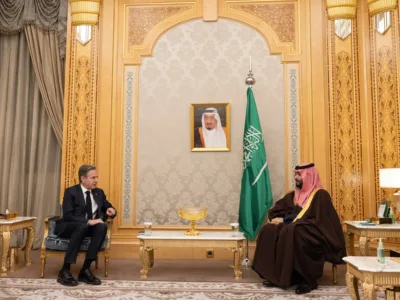New 9/11 Evidence Points to Deep Saudi Complicity
For more than two decades, through two wars and domestic upheaval, the idea that al-Qaeda acted alone on 9/11 has been the basis of U.S. policy. A blue-ribbon commission concluded that Osama bin Laden had pioneered a new kind of terrorist group—combining superior technological know-how, extensive resources, and a worldwide network so well coordinated that it could carry out operations of unprecedented magnitude. This vanguard of jihad, it seemed, was the first nonstate actor that rivaled nation-states in the damage it could wreak.
That assessment now appears wrong. And if our understanding of what transpired on 9/11 turns out to have been flawed, then the costly policies that the United States has pursued for the past quarter century have been rooted in a false premise.
The global War on Terror was based on a mistake.
Anew filing in a lawsuit brought by the families of 9/11 victims against the government of Saudi Arabia alleges that al-Qaeda had significant, indeed decisive, state support for its attacks. Officials of the Saudi government, the plaintiffs’ attorneys contend, formed and operated a network inside the United States that provided crucial assistance to the first cohort of 9/11 hijackers to enter the country.




